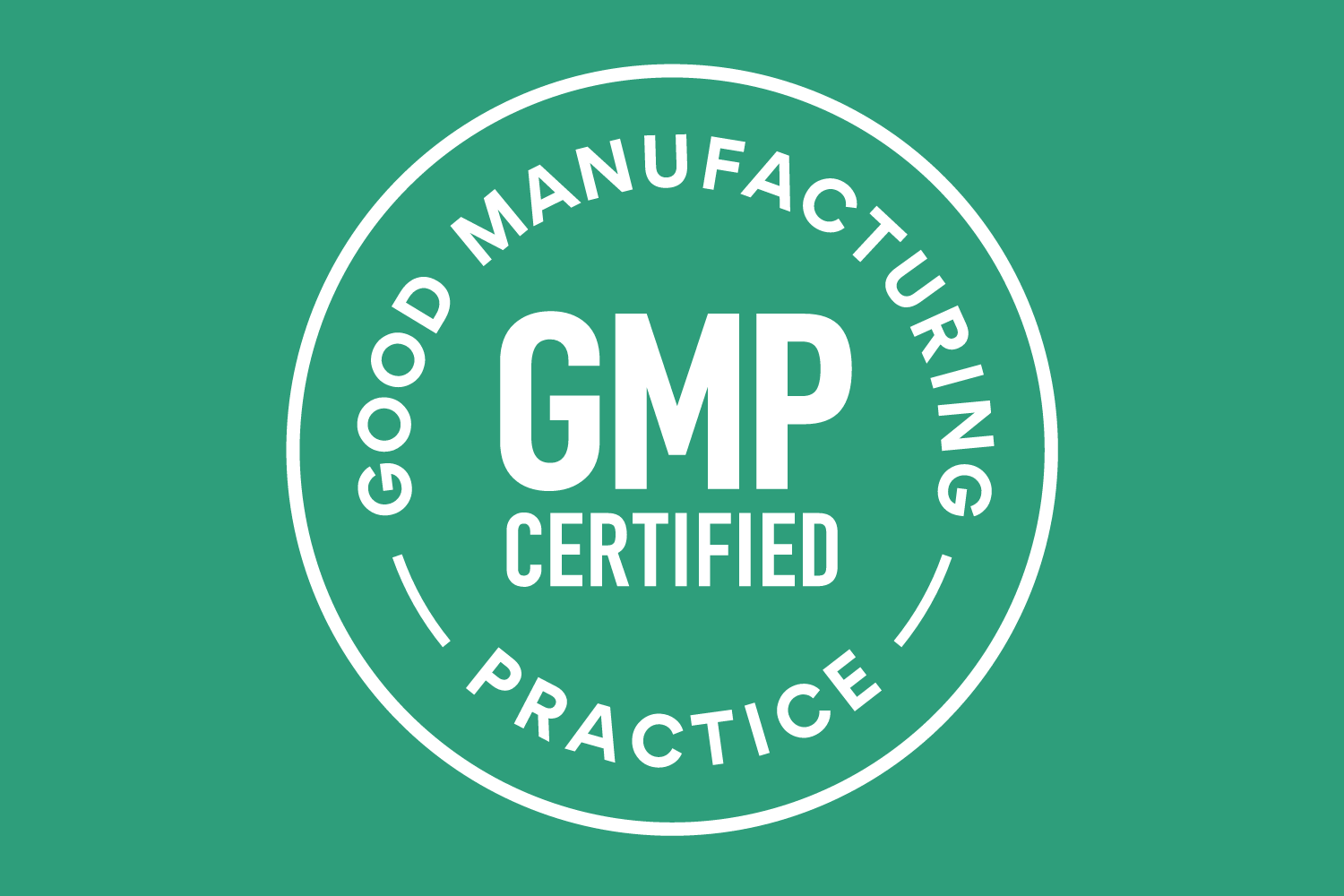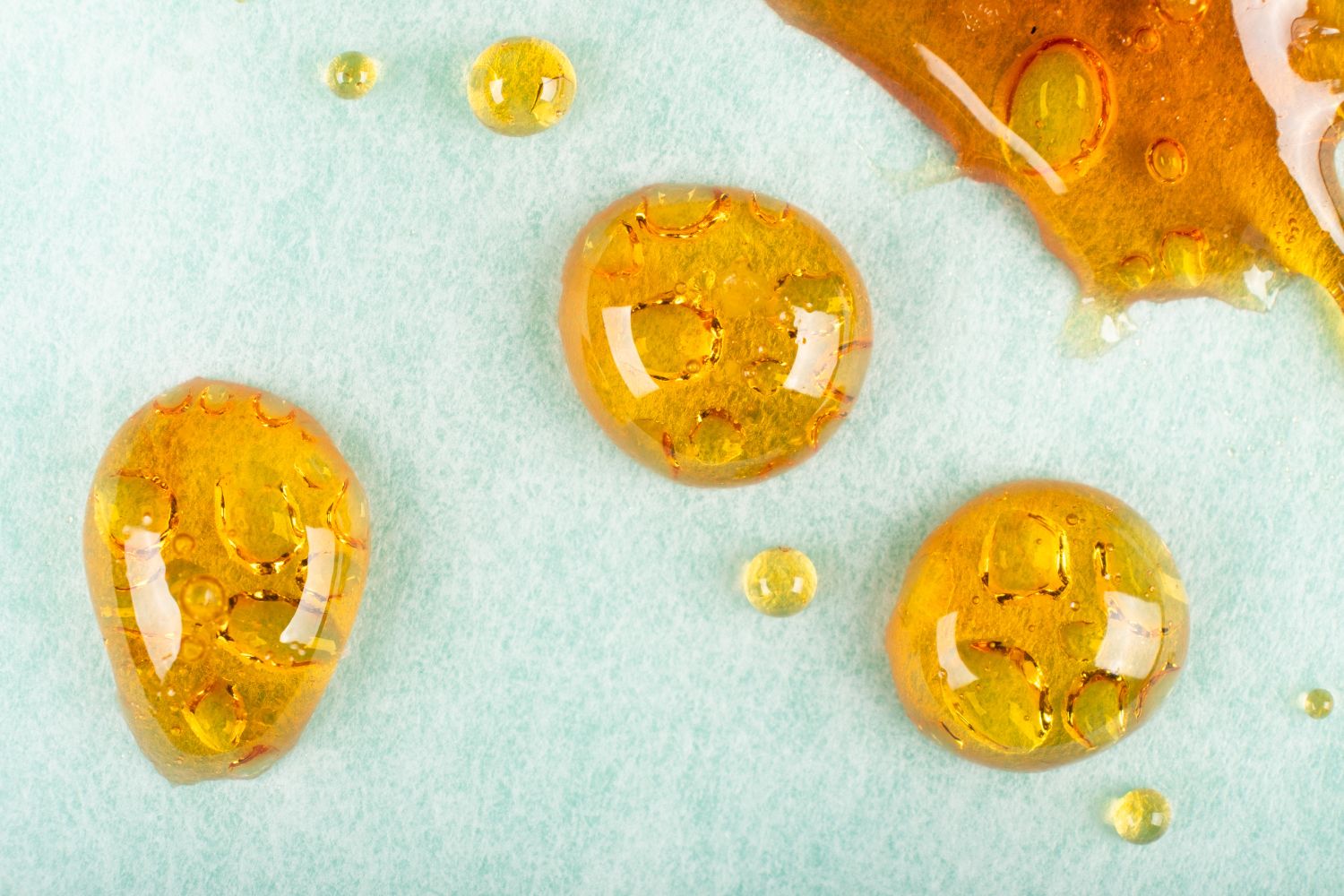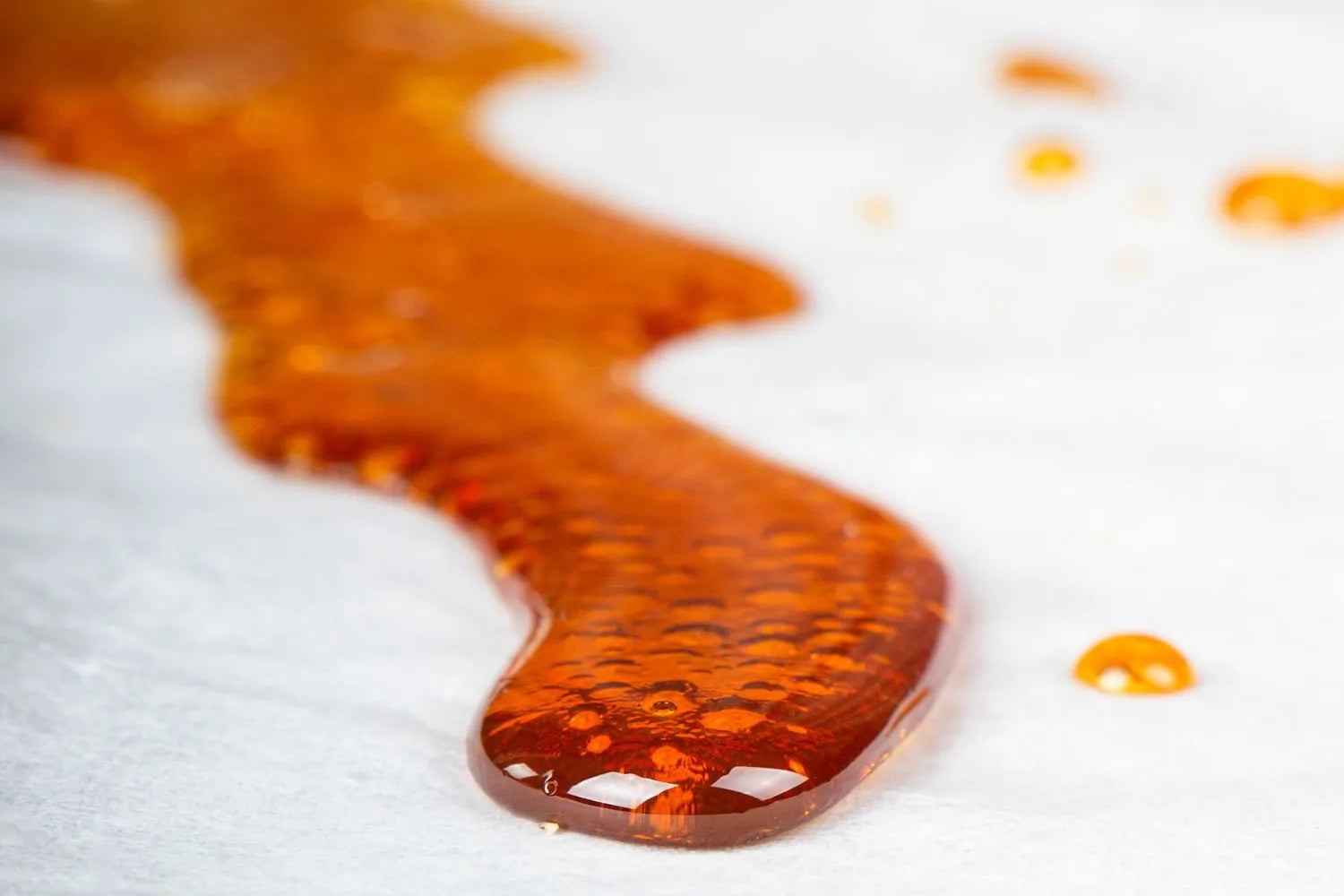CO2 extraction and ethanol extraction are two techniques that separate CBD and other compounds from hemp plant matter. Other extraction methods - like hydrocarbon purification - are falling out of favor due to concerns about residual solvents.
This leaves ethyl alcohol (ethanol) and CO2 purification seemingly locked in a permanent battle for popularity. Which one is cleaner? Which one is cheaper? Which one is safer?
Both approaches have benefits and drawbacks. Most vendors choose one approach and vehemently defend its safety, efficacy, and purity.
But to better understand the advantages and disadvantages of CO2 extraction and ethanol extraction methods, we need to look past the marketing and independently examine these techniques.
What is CBD Extraction?
CBD extraction is when cannabidiol from the cannabis sativa L. plant species is separated from raw cannabis into a crude extract.
Depending on the purification method, the filtered material may need to undergo further processing. The chosen technique always has benefits and drawbacks. Considerations like cost-effectiveness or high purity help producers determine which approach works best for their CBD products.
What Types of Hemp CBD Extraction Methods Are There?
There are multiple methods. These extraction practices offer benefits and drawbacks. However, with the right skill and control, all of the techniques can create high-quality hemp extracts.
The purification strategies we'll discuss are:
- CO2 extraction
- Ethanol extraction
- Hydrocarbon extraction
What is CO2 Extraction?
CO2 extraction uses carbon dioxide as the solvent. Initially, the process needed high heat to separate the desired cannabis compounds. Low-temperature methods later improved cannabinoid and terpene retention.
Carbon dioxide extraction's biggest selling point is that it leaves no residual solvent traces. Nonetheless, this technique also has some issues.
How Does CO2 Extraction Work?
CO2 purification is impossible to perform at home. The process requires complicated extraction systems and trained technicians to operate them.
CO2 passes through the plant material and dissolves the cannabinoid and terpene-rich trichomes. These crystalline structures contain the highest concentration of cannabis compounds.
But harnessing CO2 in such a way requires precision. Technicians adjust temperature and pressure to place the gas in a supercritical state - a small window where matter sits between solid and liquid.
Once ready, the supercritical fluid is pumped through a small canister containing ground cannabis. Gradually, the supercritical carbon dioxide dissolves and separates cannabinoids, terpenes, and flavonoids from the other plant matter.
Further adjustments to temperature, pressure, and flow allow cannabis compounds to bind to the CO2 and be carried away from the ground plant material.
The final extract will contain no CO2 traces if no solvents are used in post-extraction, which ethanol is commonly used in the filtration process.
Pros of CO2 Extraction
No Solvents
First (and arguably foremost), carbon dioxide is the only filtration method that doesn't leave residual solvent traces. This advantage sets CO2 apart from ethanol and hydrocarbon solvent extraction methods.
The solventless nature is why CO2 purification is generally considered the best option by customers and vendors. But - as we'll see shortly - this isn't necessarily true.
Natural Detoxifier
A lesser-known benefit of the CO2 technique is that it kills dangerous organic invaders like mold, mildew, and bacteria.
Higher Yield
Although expensive, CO2's cost is partially offset by efficiency. Investing in this technique provides more CBD per batch than any other technique.
Precise Extraction
CO2 offers the best way to isolate specific cannabinoids. Unlike ethanol and hydrocarbon methods, carbon dioxide extraction can be tailored to specific cannabis compounds. This provides products like CBG, CBN, and CBC while still filtering out THC.
Cons of CO2 Extraction
Least Cost-Effective Option
From a business standpoint, the biggest disadvantage of CO2 extraction is its higher cost. The advanced equipment and expertise required to perform the technique are expensive.
Limited Terpene and Cannabinoid Retention
Despite its effectiveness with CBD extracts, CO2 purification doesn't retain terpenes and minor cannabinoids effectively compared to older options, like ethanol.
Final Thoughts
Most manufacturers choose the CO2 extraction process due to its efficacy and solventless nature. While it can reduce the potency of finished products, advancements in CO2 techniques have tweaked the process, making it less destructive to terpenes and other compounds.
What is Ethanol Extraction?
Ethanol extraction is when ethyl alcohol is mixed with ground cannabis biomass.
Hemp CBD supplement manufacturers can use complicated cryogenic ethanol ("cold ethanol extraction") equipment.
However, it's possible to create CBD tinctures with concentrated transparent grain alcohol, such as Ever Clear - referred to as "warm ethanol extraction."
How Does Ethanol Extraction Work?
Ethanol is a polar solvent, which means it can dissolve cannabis compounds like cannabinoids and terpenes.
Ethanol extractions come in two categories:
Cryogenic ("cold") ethanol extraction freezes unwanted compounds and materials to prevent them from dissolving with the alcohol solvent.
Warm ethanol extraction works similarly to cold, except the solvent isn't cryogenically frozen. This makes it inferior to the industrial option.
Since cryogenic ethanol purification solves almost all of the issues with warm alcohol, we'll focus on the pros and cons of the superior method.
Pros of Ethanol Extraction
Improved Efficiency
The cold method is more effective than its warmer counterpart since it eliminates impurities from the hemp extract without going through further purification.
Higher Compound Retention
Ethanol extraction may be older and "dirtier" than a solventless system, but alcohol's ability to retain natural cannabis compounds is unrivaled.
Despite being less common, ethanol techniques can create the most compound-rich CBD oil products.
More Cost-Effective
Cold or warm, the ethanol extraction process is cheaper than CO2. Individuals who want to make ethanol tinctures can do so (albeit with the inferior warm method) with clear grain alcohol and household items.
Cons of Ethanol Extraction
Higher Compound Retention
Ironically, ethanol extraction's biggest strength can be its biggest weakness. We could argue that the ethanol extraction process is too effective.
The warm ethanol CBD extraction method also pulls out contaminants. While the cryogenic ethyl-alcohol technique absorbs fewer unwanted compounds, it's not as thorough as CO2.
However, third-party tests indicate that proper ethanol extraction ensures trace contaminants are well below safe (or detectable) levels.
Less Precision
Unlike the CO2 process - which allows precise targeting of certain cannabinoids - ethanol's nature is "all or nothing." Consequently, the extract mirrors the profile of its host plant, with no control over cannabinoid and terpene content.
Trace Solvents and Contaminants
Cold ethanol extraction already leaves minimal solvent traces. However, small remnants are inevitable since the mixture doesn't undergo further purification.
Lower Efficiency
Efficiency is a tradeoff with alcohol extraction. CO2 provides higher cannabinoid yields; ethanol generates more balanced and robust CBD products.
Final Thoughts
Warm alcohol extraction requires additional distillation or purification to remove dangerous contaminants. Unfortunately, these steps destroy terpenes and cannabinoids, partially negating the benefits while dramatically increasing production costs.
Cryogenic ethanol techniques greatly reduce those toxins, but the final product won't match CO2's purity.
With the utilization of precise purification technology and the expertise of select individuals, the potential becomes significantly enhanced. This is particularly evident in retaining a greater array of cannabinoids and terpenes, offering unparalleled possibilities.
What is Hydrocarbon Extraction?
Concentrates - such as resin, shatter, and wax - are still made using hydrocarbons like propane or butane. Although established, this age-old technique is the least preferable.
How Does Hydrocarbon Extraction Work?
Hydrocarbon is slightly similar to the CO2 method. Like with CO2, the solvent (butane or propane) moves through a container or chamber carrying raw cannabis. The hydrocarbon dissolves cannabinoids and terpenes.
Once the process is complete, manufacturers subject the mixture to high temperatures and boil away most of the hydrocarbon solvent - emphasis on "most."
Pros of Hydrocarbon Extraction
Lower Cost
Industrial hydrocarbon extraction systems are expensive, but comparatively cheaper than cold ethanol extraction, let alone CO2.
Can Be Performed at Home
It's possible to make butane or propane extracts at home. However, we strongly recommend against this.
Cons of Hydrocarbon Extraction
Most Dangerous Extraction Method
The chemical and physical properties of the aforementioned hydrocarbons make them volatile. The slightest spark may lead to massive property damage, injury, or death.
Even working in a professional facility is risky for employees. An industrial accident could be catastrophic.
"Dirtiest" Option
In terms of cleanliness, hydrocarbon extraction is easily the worst choice. Trace solvents left behind are toxic, especially when inhaled.
Final Thoughts
Rarely (if at all) do vendors use hydrocarbon solvents for basic CBD products like oils, edibles, or topicals. This is good news since CO2 and ethanol extractions can provide the same products as their butane or propane counterparts.
The drawbacks of such a technique far outweigh the benefits. Avoid vendors who use this method, especially in the currently unregulated CBD supplement industry.
Conclusion: CO2 vs. Ethanol vs. Hydrocarbon Extraction for CBD
All extraction processes have advantages and disadvantages, although it's safe to assume that hydrocarbon methods are objectively inferior to newer techniques.
CO2 and ethanol processes, however, are seemingly deadlocked. Both offer significant benefits and noteworthy drawbacks.
In the end, no method is objectively better. Customers and manufacturers should closely examine which approach provides the best product for their needs or target markets respectively.
As Jim Makoso from Lucid Labs tells MJBiz Daily: “It’s tough to pigeonhole one extraction process as being optimal. There is no one process that’s better over another without putting qualifying statements on there.”






